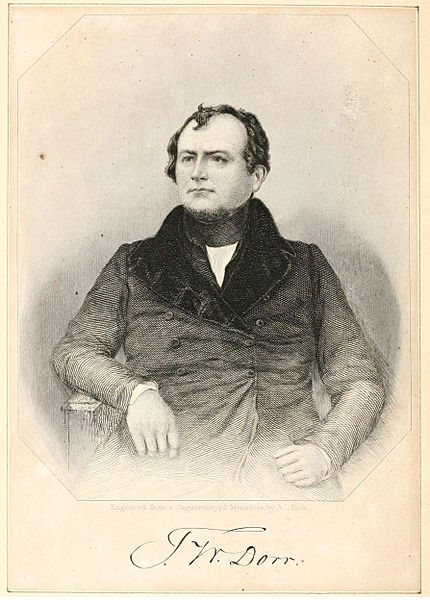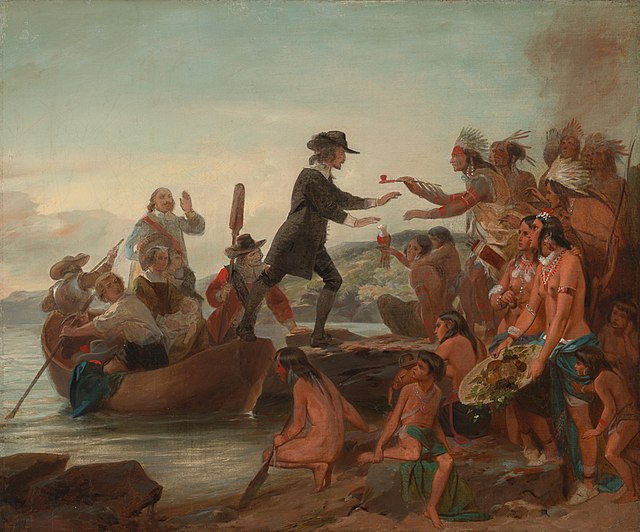The Dorr Rebellion (1841–1842) was an attempt by residents to force broader democracy in the state of Rhode Island. It was led by Thomas Wilson Dorr, who mobilized his followers to demand changes to the state's electoral rules. The state was still using its 1663 colonial charter as a constitution, which required that voters own land as qualification to vote. The rebellion established a parallel government alongside the existing chartered government and wrote a new constitution for Rhode Island. It failed, but it forced the rewriting of the state constitution to expand eligibility to vote.
Thomas W. Dorr from an 1844 book's frontispiece
An illustrated broadside denouncing Whig politicians who worked with Democrats to secure Dorr's freedom in 1845
Rhode Island is a state in the New England region of the Northeastern United States. It borders Connecticut to its west; Massachusetts to its north and east; and the Atlantic Ocean to its south via Rhode Island Sound and Block Island Sound; and shares a small maritime border with New York, east of Long Island. Rhode Island is the smallest U.S. state by area and the seventh-least populous, with slightly fewer than 1.1 million residents as of 2020; but it has grown at every decennial count since 1790 and is the second-most densely populated state, after New Jersey. The state takes its name from the eponymous island, though nearly all its land area is on the mainland. Providence is its capital and most populous city.
In 1636, Roger Williams and his followers founded the settlement of Providence Plantations.
In 1936, on the 300th anniversary of the settlement of Rhode Island in 1636, the U.S. Post Office issued a commemorative stamp, depicting Roger Williams
In 1680, Newport was the third largest Anglo-American city. It remained a prosperous population center until the 1770s.
Providence Revolutionaries burned HMS Gaspee in Warwick in protest of British customs laws.






